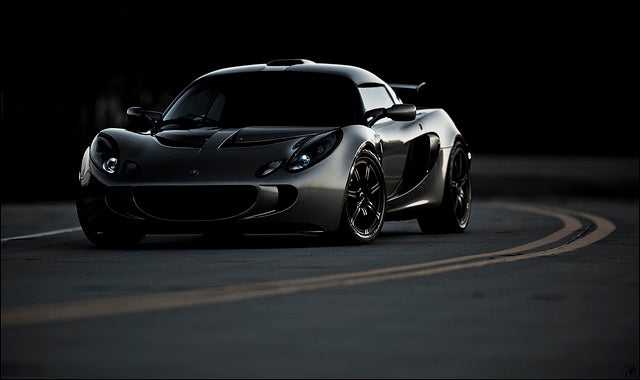 "Awe_thentiX" (awe-thentix)
"Awe_thentiX" (awe-thentix)
04/26/2014 at 01:48 • Filed to: None
 0
0
 10
10
 "Awe_thentiX" (awe-thentix)
"Awe_thentiX" (awe-thentix)
04/26/2014 at 01:48 • Filed to: None |  0 0
|  10 10 |

What would cause an engine to slow the car more effectively via engine braking? I know the basics of engine braking -how it works, the causes of it, how to do it more efficiently, etc- and could explain it to someone fairly well. However, I don't know all the complexities. So, what would cause a car to slow more, without the use of mechanical brakes? Is it power, or torque? Does it have to do with rpm levels? Is it mainly about gearing?
Anyone have an answer? I'll repost tomorrow if the night crowd doesn't have it.
Have a Lotus for your efforts.
 Rob Evans
> Awe_thentiX
Rob Evans
> Awe_thentiX
04/26/2014 at 01:53 |
|
Engine braking is caused mostly by vacuum as the throttle is closed. Larger volume cylinders will create a larger vacuum and cause more engine braking (e.g - a Ducati 2cyl engines offers much more engine braking than a comparable displacement Suzuki 4cyl engine).
Braking caused by gearing is something else entirely, but also has the same effect. The shorter the gearing is, the more 'braking' it will provide.
 michael bleggi
> Awe_thentiX
michael bleggi
> Awe_thentiX
04/26/2014 at 01:58 |
|
the engine is a bunch of heavy metal that spins around because of carefully placed explosions. when those explosions don't happen, the engine jawns don't spin around; they weigh a considerable amonut. the momentum of the car moving forward is overcome by the force and energy required to spin the engine jawns when the drivetrain connects the wheels to the engine, therefore the car slows down. has nothing to do with the amount of power that the engine produces with the explosions happening. sorry if i tried to over-simplify
 Awe_thentiX
> Rob Evans
Awe_thentiX
> Rob Evans
04/26/2014 at 02:06 |
|
Thanks for the help. Definitely answered my question. Unfortunately it scraps almost any future possibility in using it more effectively.
 Awe_thentiX
> michael bleggi
Awe_thentiX
> michael bleggi
04/26/2014 at 02:07 |
|
No worries about over simplification. It definitely helped out. Thanks!
 samssun
> michael bleggi
samssun
> michael bleggi
04/26/2014 at 02:25 |
|
Just spinning the engine components is a small part of the resistance. It's more from the fact that your throttle is closed, so every intake stroke is pulling against vacuum.
Since an engine is an air pump, and the vacuum it pulls is a measure of what it can flow and therefore the power it can make, engine braking is correlated to power. Increasing bore, stroke, or rpm means increasing both flow rate (power) and vacuum (resistance when throttle is closed).
 Zibodiz
> Awe_thentiX
Zibodiz
> Awe_thentiX
04/26/2014 at 02:48 |
|
Another aspect not mentioned thus far is compression. The higher the compression in your engine, the more resistance when there's no (or little) combustion, which causes an increase in braking force.
Since the air that is in the cylinder is compressed, it can act like a spring (to a certain extent) and cancel out some of the benefits of engine braking. To resolve this, Diesels use a valve that opens in the cylinder at TDC to release the pressure before it has a chance to push the piston back down. These are commonly called 'Jake Brakes'.
 michael bleggi
> samssun
michael bleggi
> samssun
04/26/2014 at 09:26 |
|
that makes a lot of sense and never knew that.. but why does diesel engine braking work then? no throttle... i've only owned one gasser and didn't get to know her too well
 samssun
> michael bleggi
samssun
> michael bleggi
04/26/2014 at 15:02 |
|
Diesels don't have actual engine braking. They either use an exhaust butterfly valve (smaller trucks) or a jake brake (big rigs, machine gun/jackhammer sound) which opens the exhaust valve early, venting off compression instead of letting the air act as a spring against the pistons.
 michael bleggi
> samssun
michael bleggi
> samssun
04/26/2014 at 15:55 |
|
really? i've never driven a manual gas car enough to engine brake in one i guess, so my diesel jettas raelly don't "engine brake" as hard as a gasser would?
 samssun
> michael bleggi
samssun
> michael bleggi
04/26/2014 at 18:41 |
|
I've never thought about it for a diesel car, that presumably lacks an exhaust butterfly. Turbos cause some braking due to back pressure (tell that to the "recovering free power" crowd), and apparently some with variable vanes will close them to increase it.
Googling returns threads with people arguing about the fact that diesel cars don't have true engine braking, yet they can feel deceleration in gear. Here's one with a Cummins camshaft machinist (ie makes actual Jake brakes) trying to figure it out:
http://forums.vwvortex.com/showthread.php…